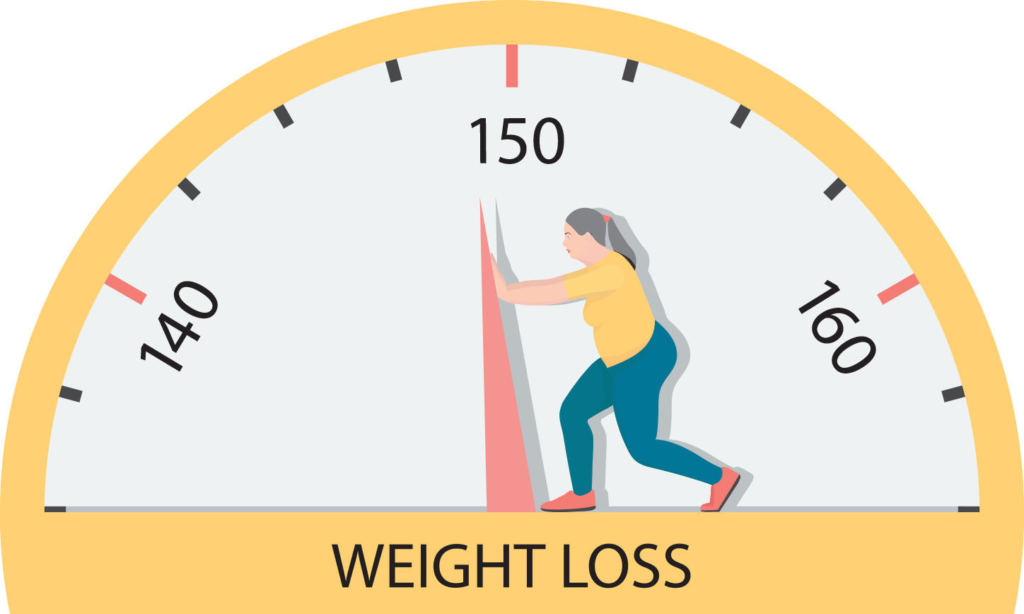
Introduction to Weight Loss Drugs
Weight loss can often feel like an uphill battle. With countless diets, exercise plans, and lifestyle changes circulating online, it’s easy to become overwhelmed. But what if there was a science-backed solution that could help you shed those extra pounds? Enter weight loss drugs—a topic that intrigues many but is clouded by myths and misconceptions. Understanding how these medications work and their potential benefits might just be the key to finding your own path to successful weight management. Let’s dive into the world of weight loss drugs, explore their role in achieving your goals, and find out if they’re right for you.
Benefits and Risks of Using Weight Loss Drugs

Weight loss drugs can be a powerful tool for those struggling to shed excess pounds. They often work by suppressing appetite, increasing metabolism, or blocking fat absorption. Many users find that these medications help them achieve their weight loss goals more rapidly than diet and exercise alone.
However, it’s essential to consider the risks as well. Side effects can vary significantly between individuals and may include nausea, insomnia, or increased heart rate. Not everyone experiences the same level of effectiveness, leading some to feel discouraged if results don’t meet expectations.
Additionally, reliance on medication without accompanying lifestyle changes might hinder long-term success. A balanced approach combining healthy habits with any prescribed weight loss drug is crucial for sustainable results.
It’s vital to consult healthcare professionals before starting any medication. This ensures you understand how it fits into your overall health plan and helps mitigate potential risks associated with its use.
Different Types of Weight Loss Drugs
Weight loss drugs come in various forms, each designed to tackle the complex issue of obesity.
Stimulant medications like phentermine increase metabolism and suppress appetite. These can be effective for short-term use but may have side effects, such as increased heart rate.
Another category includes anti-seizure drugs, like topiramate. This drug helps reduce hunger while promoting a feeling of fullness. It’s often used off-label for weight management.
GLP-1 receptor agonists are another popular choice. Medications like semaglutide mimic hormones that control appetite and slow digestion, leading to significant weight loss when combined with lifestyle changes.
Fat absorption inhibitors like orlistat prevent dietary fats from being absorbed by the body. While they can lead to noticeable results, users must maintain a low-fat diet to minimize gastrointestinal issues associated with this type of medication.
Each type has its unique mechanism and suitability based on individual health profiles and needs.
The Top 5 FDA-Approved Weight Loss Drugs
Several FDA-approved weight loss drugs have gained attention for their effectiveness. These medications are designed to support your journey towards a healthier weight.

Orlistat, marketed as Alli or Xenical, works by blocking fat absorption in the intestines. It’s particularly effective when combined with a low-fat diet.
Phentermine-topiramate, known as Qsymia, is another popular option. This combination drug helps reduce appetite and increase feelings of fullness.
Liraglutide, sold under the name Saxenda, mimics hormones that regulate hunger. Users often report significant reductions in cravings and food intake.
Bupropion-naltrexone (Contrave) targets brain pathways involved in hunger control. Many find it beneficial for managing emotional eating triggers.
Semaglutide (Wegovy) has emerged recently with impressive results in clinical trials—offering substantial weight loss benefits over time. Each of these medications plays a unique role in supporting individuals striving for effective weight management.
How to Use Weight Loss Drugs Safely and Effectively
Using weight loss drugs can be a helpful tool, but safety is crucial. Always consult your healthcare provider before starting any medication. They will assess your health history and suitability.
Follow the prescribed dosage meticulously. Taking more than recommended won’t speed up results and may lead to harmful side effects.
Combine these drugs with lifestyle changes for optimal effectiveness. A balanced diet and regular exercise amplify the impact of weight loss medications.
Monitor your body’s response carefully. Keep track of any side effects or unusual symptoms and report them to your doctor right away.
Stay informed about potential interactions with other medications you might be taking. Open communication with your healthcare professional is key in ensuring safe use.
Patience is important; effective weight loss takes time, even when using pharmaceutical aids.
Common Misconceptions About Weight Loss Drugs
There are many misconceptions surrounding weight loss drugs. One common myth is that they provide a magic solution for quick results. In reality, these medications are most effective when combined with lifestyle changes like diet and exercise.
Another misunderstanding is that all weight loss drugs are the same. Each medication targets different mechanisms in the body, making some more suitable for certain individuals than others. It’s important to consult a healthcare provider to find what works best for you.
Many believe that using weight loss drugs means no need for dietary restraint or physical activity. This notion can lead to disappointment, as sustainable weight management requires effort on multiple fronts.
There’s a fear that weight loss drugs will lead to long-term dependency. While this concern is valid, most FDA-approved options aim for short-term use paired with behavioral changes rather than lifelong reliance on medication.
Therefore, whether or not you apply them, making informed choices will, in turn, lead you toward healthier living habits.
As a result, you’ll be better equipped to evaluate your options. Regardless of whether you adopt these strategies, informed decisions are key to building healthier habits. Consequently, you’ll develop a more strategic approach. Even so, your commitment to informed decision-making will be what ultimately supports lasting healthy habits
Conclusion: Is a Weight Loss Drug Right for You?
Choosing a weight loss drug can be a significant decision. It often depends on individual circumstances, including health status and specific weight loss goals.
Consulting with healthcare professionals is essential. They can provide insights tailored to your needs and help assess the potential benefits versus risks of these medications.
Consider lifestyle factors too. Weight loss drugs work best when combined with healthy eating and regular physical activity.
Your motivation plays a crucial role as well. The right mindset will support your journey, regardless of whether you choose medication or prefer natural methods.
It’s about finding what complements your body’s needs while aligning with your personal lifestyle choices. Every path is different; ensure yours feels right for you at every step.
FAQs
1. What are weight loss drugs?
Weight loss drugs are medications designed to aid individuals in losing weight by suppressing appetite or increasing feelings of fullness. They can be part of a comprehensive weight management program that includes diet and exercise.
2. Do weight loss drugs really work?
Many people find success with FDA-approved weight loss drugs when used correctly. However, they aren’t magical solutions. Combining these medications with lifestyle changes yields the best results.
3. Are there side effects associated with weight loss drugs?
Yes, like any medication, weight loss drugs may come with potential side effects ranging from mild discomfort to more serious health risks. It’s essential to consult your healthcare provider for personalized advice tailored to your situation.
4. Can anyone take weight loss drugs?
Not everyone is eligible for prescription weight-loss medications. Healthcare professionals typically recommend them for those who have a BMI over 30 or those with a BMI over 27 who also have other health conditions related to obesity.
5. How long do I need to take them?
The duration varies based on individual goals and responses. Some people may benefit from short-term use while others might require longer durations under medical supervision.
6. Is it safe to stop taking these medications abruptly?
It’s essential not to stop taking any prescribed medication without first consulting your doctor, as this could lead to unwanted side effects or regain lost pounds rapidly.
Understanding how these elements interact can provide clarity in what often feels like an overwhelming landscape of choices surrounding effective strategies for achieving lasting results in your personal fitness journey. Whether you consider using them or not, informed decisions will ultimately guide you toward healthier living habits. Moreover, whether you choose to incorporate them or not, ultimately, informed decisions will guide you toward healthier living habits.







